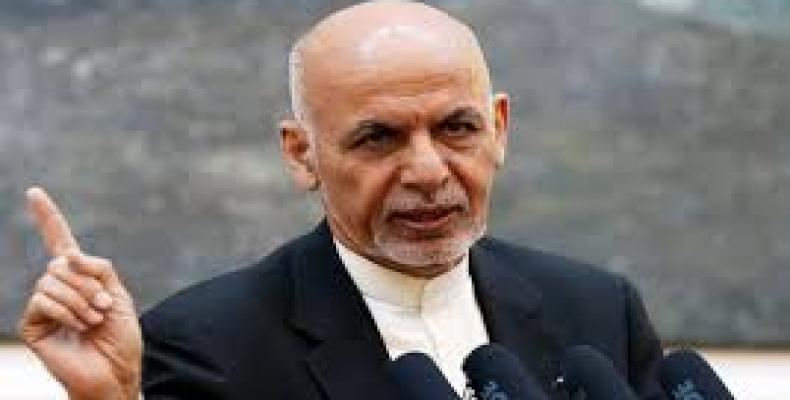Kabul, February 8 (RHC)-- The President of Afghanistan Ashraf Ghani has warned that his government will have the final say on any agreement reached between the United States and the Taliban coming out of the peace talks currently taking place.
“At the end of any peace deal, the decision-maker will be the government of Afghanistan,” Ghani told TOLO News. President Ghani has been keen on reassuring the international community that the government holds power over Afghan politics, at a time when the country’s fate is being discussed in two forums, one promoted by Washington and the other by Moscow.
For its part, the Taliban has closed the door to including Ghani’s government in the talks as it considers the latter to be illegitimate and a puppet of the U.S. government, according to The Diplomat.
The Taliban is not the only force undermining President Ghani. His political rivals are set to conduct a Moscow-sponsored round of talks, which the government has denied taking part in because this action would imply recognizing “equal footing” to a third party, according to the Washington Post.
Despite criticism of the peace process, of which President Ashraf Ghani has been marginalized, Ghani still maintains a close relationship with Washington, as evidenced by studies and work experience closely tied to U.S. foreign policy.
Moreover, the Afghan president is a former employee of the World Bank and was also one of Washington's favorites to lead Afghanistan during elections, in which he was portrayed as a traditional ethnic Pashtun leader during the last election, according to Jacobin.
The White House recently announced its intention to withdraw troops from Afghanistan, a move which it says is contingent on reaching a ceasefire result from the peace talks.
The war in Afghanistan started more than 15 years ago after the U.S. invaded the country and overthrew the Taliban government as part of ex-President George W. Bush’s global “war on terror” following the United States' 9/11 terrorist attacks. The ongoing conflict is estimated to have left over 220,000 people dead, mostly civilians.


